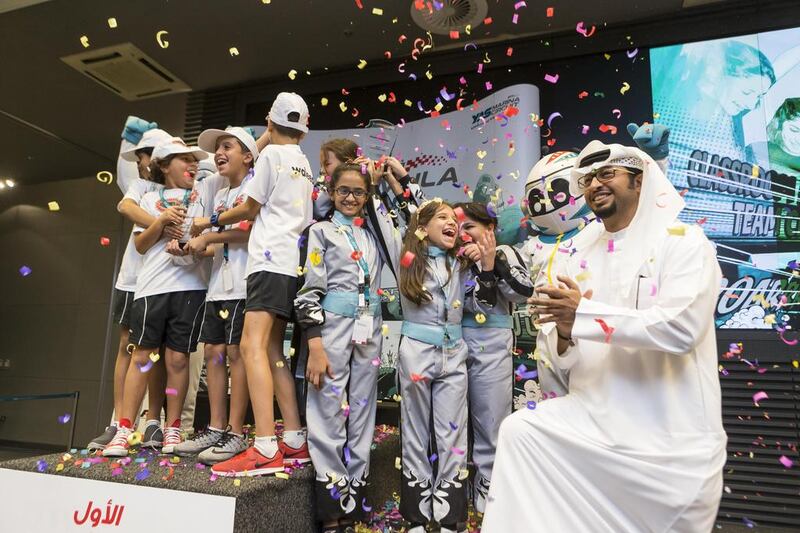At a recent well-being conference hosted here in the UAE, an engaging, effective and philosophical educational leader by the name of Ian Morris, who is head of well-being at Wellington College, a private school in the United Kingdom, took to the stage to help a room of 60 education professionals re-engage with the core purpose of education.
Mr Morris helped shape Anthony Seldon’s prolific happiness agenda in the UK. Mr Seldon was Wellington College’s headmaster until two years ago and for him, education is all about and, perhaps, only about eudaimonia. For those of you a little rusty on your Aristotle, eudaimonia is the art and science of living well.
Indeed, for Aristotle there was no greater purpose to life than living well, which entailed the acquisition of certain real goods. These real goods were not superfluous pleasures – what we may deem today as conspicuous consumption – but those bodily, material and psychological goods that were obligatory for living a good life, such as food, shelter and knowledge.
Unsurprisingly enough, Aristotle never mentioned GCSEs or A Levels, Pisa, CAT or TIMSS scores when he talked about the good life. As a consequence, he remains one of the most powerful and timeless influences on western thought.
At its best, modern education still enables students and indeed staff to pursue eudaimonia. Nations or sometimes a handful of schools within them explicitly teach the pursuit of the good life, regardless of their global rankings. Paradoxically in such educational systems prodigious examination results are often the serendipitous outcome of such a self-confident philosophy, which does not promote test scores as an end in themselves.
Finland is the canonical example of such a country. Ever since 2001, when the first global Programme for International Student Assessment results were released, the country has been at or near the top of the Pisa world rankings.
Unlike the tiger economies of South East Asia, however, their test scores have not come about through the imposition of targets and the monitoring of each school’s results. Quite the opposite, in fact.
Several recent books on the country such as Teach Like Finland: 33 Strategies for Joyful Classrooms by Timothy Walker, Finnish Lessons 2.0 by Pasi Sahlberg and The Smartest Kids in the World by Amanda Ripley outline the positively counterintuitive and liberal educational philosophy of the Finns, which flies in the face of a target-driven approach.
For these writers and educational researchers, the nature of the Finnish success story is rooted in a system of entirely state-funded schools. The absence of private schools and their attendant competition means that educators can focus on student well-being, health and happiness without the pressure to extract certain test scores from their students to maintain or advance their market position.
A focus on such comprehensive education means that the teachers who are recruited need to be far more skilled to teach a broad range of students and, as such, only the most talented and motivated graduates apply.
Furthermore, the importance placed on the psychological health of the students means that Finnish schools have a far more well-developed welfare system than many counterpart schools elsewhere. Beyond this, students themselves are given far more freedom outside school hours to involve themselves in clubs, sports and extra-curricular activities of their own making. The school day ends in the early afternoon affording students time to cultivate their own interests at one of the 100,000 or so non-governmental institutions in the country.
Such a system thereby champions education as an end in itself, a training ground for the pursuit of eudaimonia rather than global rankings.
As a consequence, young Finns (who by the way do not even start full-time education until the age of seven) produce some of the top test scores in the world, far outstripping the UK and the US, for example.
Through this approach the Finnish people also avoid what Mr Morris refers to as educational instrumentalism, that is using children for the pursuit of our own political ends.
As soon as we as educators, schools or indeed whole countries change our curricula and methods to enhance student results to advance our own ends rather than the eudaimonia of our students then we cross an ethical line in the sand and it becomes very hard to return.
So as we enter the exam season it is the time to wish all our students well, in the hope that they will have a chance to celebrate their acquired knowledge and enjoy the fulfilment of a task well done without focusing exclusively on the grade they achieve at the end.
Michael Lambert is headmaster of Dubai College





